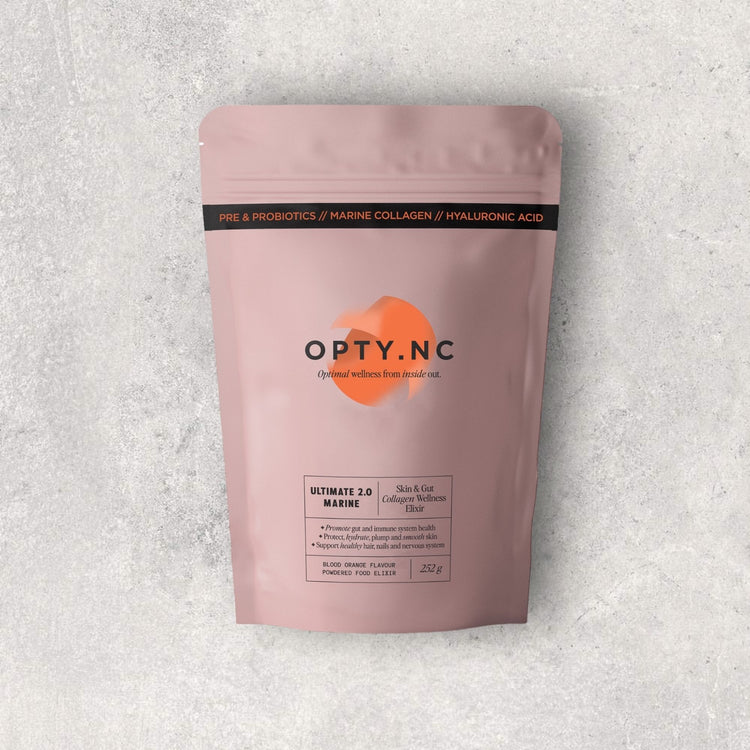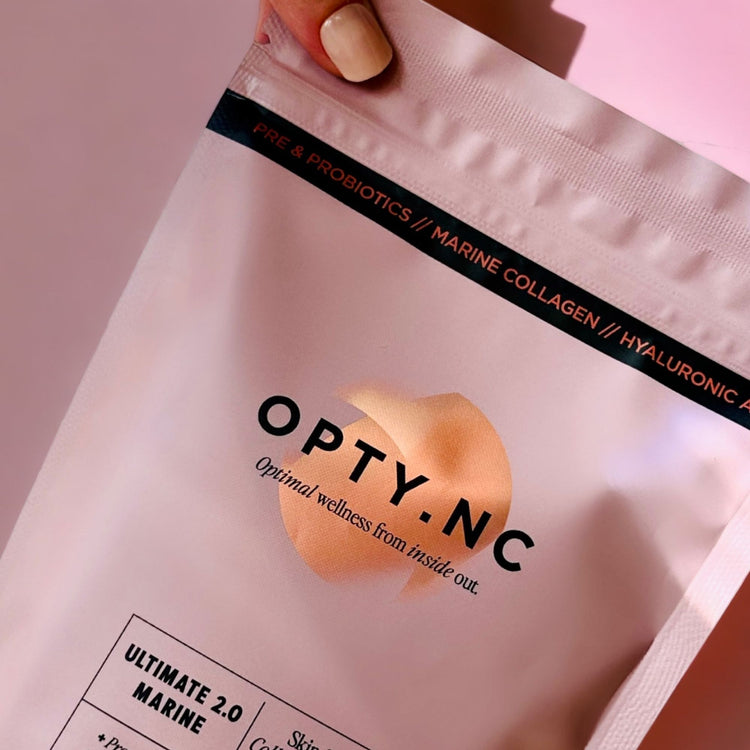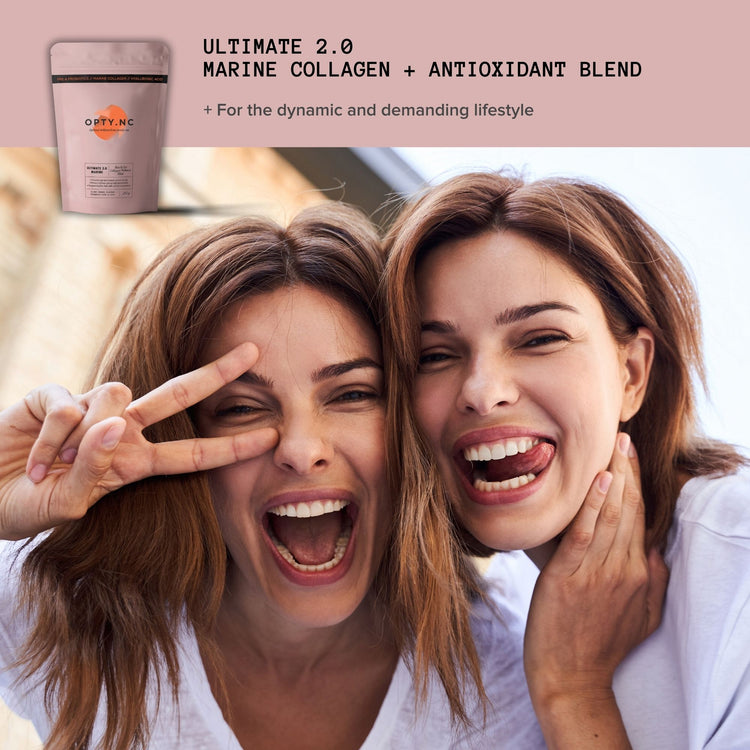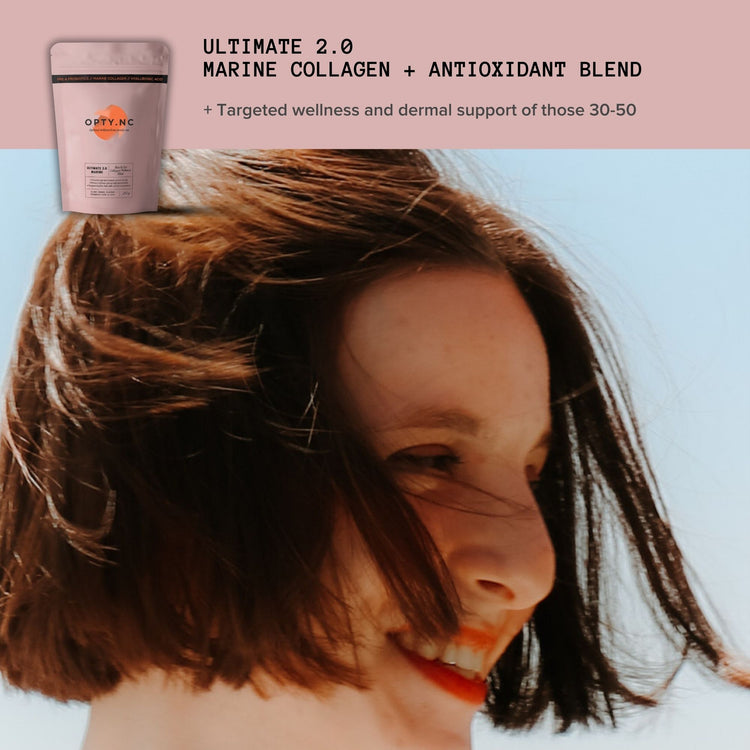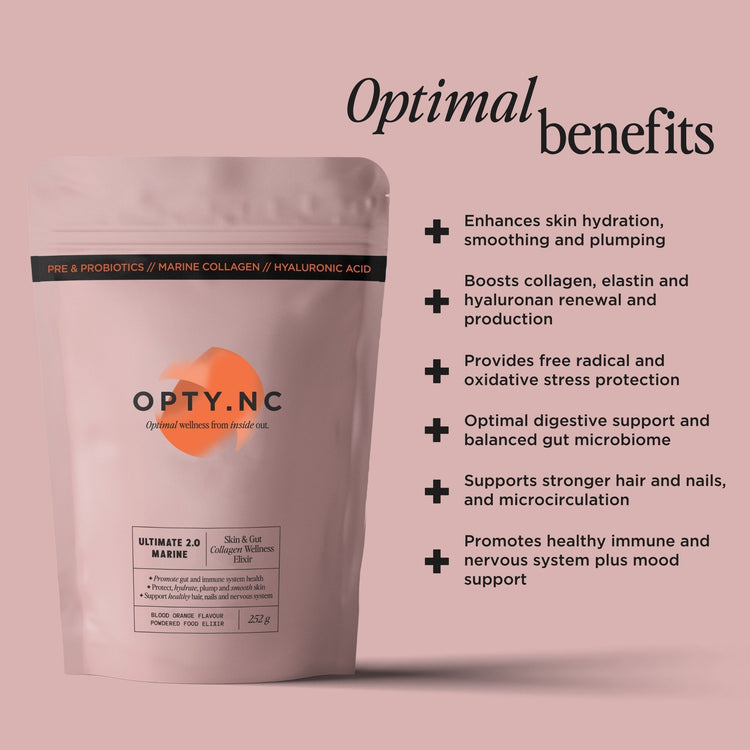We’ve all heard the phrase “you are what you eat,” but did you know that what you eat can also affect the quality of your skin? It’s true! While genetics, skincare routines, and environmental factors also play a role in skin health, what you eat can have a significant impact on the appearance and overall health of your skin. A healthy diet made up of nutrient-rich foods can lead to smoother, clearer skin, while a diet high in processed or sugary foods can lead to inflammation and breakouts.
So what does a “good skin diet” look like?
To achieve a healthy, radiant complexion, it is essential to adopt a well-rounded diet that prioritizes reducing inflammation, maintaining skin moisture and supporting skin cell repair and growth. Here are 5 crucial aspects to consider and include in your daily eating habits.

Hydrate, hydrate, hydrate
Staying well-hydrated is crucial for maintaining skin health. One of the simplest ways to improve skin quality is to drink plenty of water. Water helps to flush toxins out of the body and keeps skin cells plump and hydrated. Drinking adequate water can also reduce dryness and promote a healthy complexion. Aim for at least eight glasses of water daily, and consider incorporating green tea, coconut water, or other hydrating beverages into your routine.
Our OPTY.NC products are the perfect fusion of incredible flavor and proven skincare. Not only do they enhance your skin vitality and inner well-being, but they also ensure you stay hydrated by adding the elixirs into one refreshing 8oz glass of water.

Load up on antioxidants
Antioxidants are compounds found in colorful fruits and vegetables that help protect the body against free radical damage and oxidative stress, which can lead to premature aging and skin damage. Foods high in antioxidants can promote cellular repair and boost the skin’s natural glow. Some great sources of antioxidants include fruits (e.g., berries, citrus fruits), leafy greens (e.g., spinach, kale), and cruciferous vegetables like broccoli and cauliflower.
Don't forget about the essential role of Vitamin C in promoting collagen production for firm and youthful skin. Find this vital nutrient and antioxidant in citrus fruits, strawberries, and bell peppers.
Shield your skin from UV damage and other environmental stressors with the antioxidant powers of Vitamin E. Nuts, seeds, and spinach are excellent sources of this protective vitamin.
Vitamin A also has antioxidant properties. Vitamin A is important for skin cell production and repair. Incorporate foods like sweet potatoes, carrots, and leafy greens to nourish your skin from within.
Our Foundation Range of Ultimate Elixirs harnesses the power of antioxidants, including Vitamin C, A, and E, along with pomegranate extract, melon SOD extracts, and grape seed extract. Learn more about these ingredients in our glossary or visit our Foundation Range page to explore further.

Choose healthy fats
Not all fats are created equal; some can benefit your skin's health. Omega-3 fatty acids in oily fish like salmon and mackerel and plant-based sources like chia seeds and flaxseed have anti-inflammatory and moisturizing properties.
The anti-inflammatory properties can help alleviate inflammation-related skin conditions, such as acne, psoriasis, and eczema. They can help calm redness, swelling, and itching. Omega-3s help maintain the skin's lipid barrier, preventing moisture loss and keeping the skin hydrated. Well-hydrated skin appears smoother and more supple. Omega-3s may help in slowing down the signs of aging. They can support the production of collagen, which is crucial for maintaining skin elasticity and preventing the formation of fine lines and wrinkles. Some studies suggest that omega-3 fatty acids provide a degree of protection against UV radiation. While they are not a substitute for sunscreen, they can complement sun protection efforts by reducing inflammation and minimizing the skin's reaction to UV exposure.
You can obtain omega-3 fatty acids from various dietary sources, including fatty fish like salmon, mackerel, and sardines, as well as from plant-based sources like flaxseeds, chia seeds, walnuts, and hemp seeds. In some cases, a healthcare provider may recommend supplements such as fish oil or algae-derived omega-3 capsules.
Limit sugar and processed foods
While it’s okay to indulge in moderation, a diet high in sugar and processed foods can wreak havoc on your skin. High-sugar and highly processed foods can lead to chronic low-grade inflammation, which is associated with various health issues, including skin conditions like acne and a loss of collagen in the skin. Reducing sugar and processed food intake is the first step. The next step is to choose whole foods like fresh fruit, vegetables, and whole grains to nourish your skin from the inside out.
Prioritize protein
Protein is essential for the growth and repair of skin cells, and insufficient protein intake can lead to a loss of skin elasticity and premature aging. Consuming adequate high-quality protein in your diet is crucial for supporting skin health. Protein sources such as lean meats, poultry, fish, eggs, dairy products, legumes, nuts, and seeds provide the amino acids required for skin cell growth, repair, and maintenance. Collagen is a protein that gives skin its structure and elasticity. Consuming collagen-rich foods, like bone broth or collagen supplements, may support skin health. Shop our collagen products here or learn more about why collagen is a VIP.

By adopting a “good skin diet” made up of nutrient-dense, whole foods, you can improve the quality of your skin and support overall health and well-being. Remember to hydrate properly, load up on antioxidants, choose healthy fats, limit processed foods and sugars, and prioritize protein to keep your skin looking its best. A well-balanced diet that provides all essential nutrients, including vitamins and minerals, is crucial for overall skin health. You can achieve healthy, glowing, radiant skin with a little effort and a focus on proper nutrition.
It's important to note that individual responses to specific foods may vary. What works well for one person's skin might not work for another. Therefore, it's recommended to maintain a balanced diet, stay hydrated, and pay attention to how specific foods may affect your skin. If you have specific skin concerns, consider consulting with a registered dietitian for personalized advice on how to improve your skin's health through diet. Additionally, maintaining a good inner/outer skincare routine and protecting your skin from excessive sun exposure is also essential for overall skin health.











